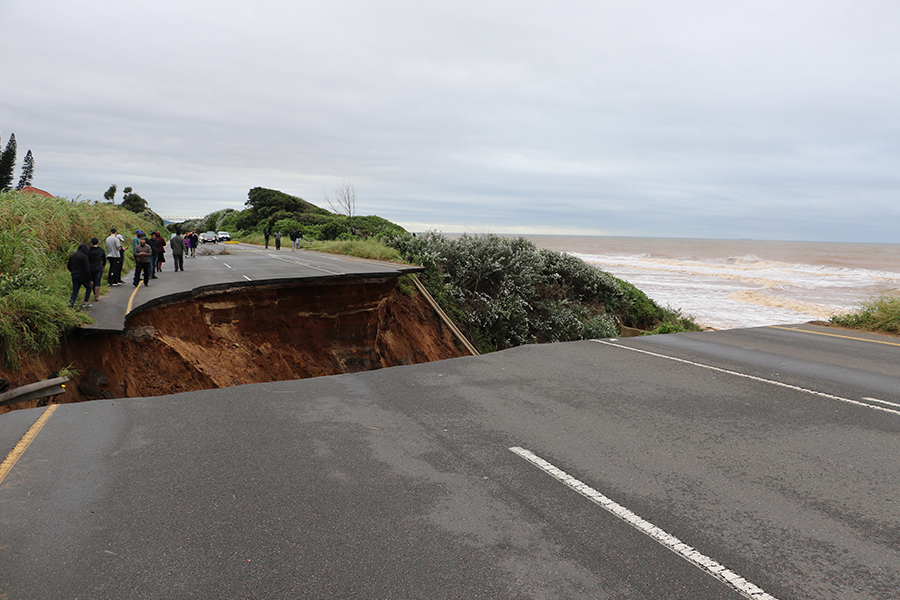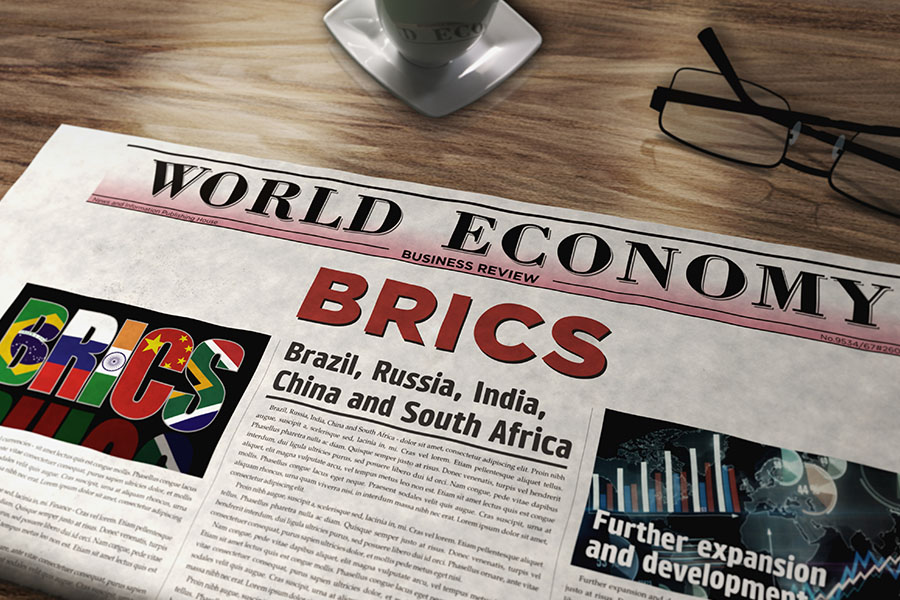

What’s Behind South Africa’s Rising Insurance Premiums?
South Africa, a nation celebrated for its diversity and rich cultural heritage, faces a multitude of challenges that extend into the realm of insurance. Climate change, deteriorating infrastructure, and a complex socio-economic fabric are putting the insurance sector under significant pressure. This pressure is not just a corporate concern; it directly impacts the wallets of many South Africans, who are already navigating financial pressures.

Climate Change and Natural Disasters in 2024
In recent times, South Africa has witnessed the kind of catastrophic events that were once thought to be exclusive to regions like the Asia-Pacific, Europe, and the United States. The July 2021 unrest, not only a socio-political shockwave but also an economic one, resulted in staggering losses estimated at R50 billion. Followed by the 2022 KwaZulu-Natal floods, which saw the insurance industry shouldering half of the R54 billion loss, it’s clear that the frequency and intensity of these events are on the rise.
Then the 2023 KwaZulu-Natal province floods hit, serving as a stark reminder of this escalating challenge. This catastrophic event led to the tragic loss of lives and the destruction of dozens of homes. In fact, in 2023, no provinces in South Africa were left untouched by a natural catastrophe or some kind. There was even an actual tornado caught on camera in Mpumalanga in 2023, one of the extreme weather events that is usually unheard of in Southern Africa. Experts expect this trend of extreme weather conditions and catastrophe events to continue in 2024.
These disasters, driven by climate change and exacerbated by infrastructural vulnerabilities, have led to a significant increase in reinsurance premiums. Reinsurance, essentially insurance for insurance companies, is crucial for spreading risk. However, the global uptick in catastrophic events has resulted in a more volatile reinsurance market, pushing premiums up and, by extension, increasing costs for South African policyholders.

Global Geopolitical Shifts and Supply Chain Disruptions
-
The Impact of US-China Tensions and the Russia-Ukraine Conflict
The interplay between geopolitical tensions and supply chain disruptions has significantly influenced South Africa’s financial landscape. The friction between the US and China, particularly intensified during the COVID-19 pandemic, has ripple effects across the globe, affecting everything from inflation rates in Western economies to strategic decisions around supply chain diversification. The concept of “friendly re-shoring” has emerged as a strategic response, aiming to lessen dependency on Chinese supply chains by pivoting towards alternatives rooted in geopolitically aligned nations. This shift, however, was further complicated by the onset of Russia’s invasion of Ukraine in early 2022, deepening geopolitical fissures and challenging the global investment climate. The International Monetary Fund (IMF) has observed a notable realignment in foreign direct investment (FDI) flows, increasingly favouring countries with shared political affiliations, particularly in sectors deemed strategic.
-
South Africa’s Geopolitical Stance and Its Implications
In this global context, South Africa finds itself at a crossroads. The nation’s historical ties with both BRICS countries and Western allies place it in a uniquely precarious position as the geopolitical landscape evolves. With the US delineating the international arena into a binary choice between “democracy and autocracy,” South Africa faces pressure to define its stance more clearly. The country’s diplomatic and economic manoeuvers, especially within international forums like the United Nations and in its dealings across the BRICS and Western blocs, are under close watch. This scrutiny not only affects South Africa’s own geopolitical and economic trajectory but also sets a precedent for the continent at large, marking a critical juncture for its future international relations and economic partnerships.
-
Repercussions for the Insurance Industry
These geopolitical shifts have direct ramifications for South Africa’s insurance sector. Tavaziva Madzinga, CEO of Santam, has highlighted the tangible impacts of such dynamics on the global reinsurance market, including the BRICS expansion, US-China trade tensions, and the ongoing conflict between Russia and Ukraine. Added to this mix is the resurgence of conflicts in the Middle East, which threatens to further destabilize global supply chains. This instability is projected to elevate the cost of claims, thereby exacerbating the affordability crisis of insurance coverage for many South Africans. This confluence of factors underscores the urgency for a nuanced understanding of geopolitical risks and their influence on insurance premiums. It also highlights the need for the insurance industry to adapt to these challenges through innovative risk management strategies and by fostering resilience against the backdrop of a rapidly changing global landscape.

Infrastructure Degradation and Insurance Sustainability
An often-overlooked aspect of insurance premiums is the state of a nation’s infrastructure. South Africa’s infrastructure, from roads to sewer systems, is increasingly susceptible to disasters. This vulnerability not only leads to more extensive damages and higher repair costs but also prolongs downtime for businesses, impacting economic productivity. Importantly, the structural soundness of infrastructure directly affects the safety and lives of individuals in disaster scenarios.
Experts like Johannesburg-based climate researcher Dr. Nomhle Ngwenya emphasize the critical importance of investing in more robust infrastructure. Dr. Ngwenya warns that without significant improvements in infrastructure, South Africa could face even more disastrous natural events in the years ahead, and she urges authorities to build resilience in the country’s infrastructure to safeguard lives and the economy.
The insurance industry’s sustainability is intricately linked to the country’s infrastructure. Addressing this challenge requires substantial investment and a collaborative effort between the government and the private sector to improve resilience and ensure the continued insurability of businesses and communities alike.

Load Shedding and Its Consequences
Another domestic issue contributing to rising insurance premiums is load shedding. The intentional power outages, meant to prevent the overloading of the electrical grid, have led to a significant spike in claims related to damage to sensitive electronic devices. In 2022, Santam reported a 67% increase in such claims, amounting to R609 million. This surge reflects the broader economic and operational risks posed by load shedding to both consumers and businesses.
Beyond the immediate disruptions, load shedding poses longer-term risks for the insurance sector. The frequent and unpredictable power outages accelerate wear and tear on electronic devices and machinery, leading to a higher incidence of failures and the subsequent need for repairs or replacements. This not only increases the volume of claims but also adds complexity to assessing the long-term durability and value of insured assets.
Moreover, load shedding impacts security systems, making properties more vulnerable to burglaries and thefts, which, in turn, could drive up premiums for property insurance. The cumulative effect of these factors necessitates a re-evaluation of risk models by insurance companies, potentially leading to innovative insurance products designed to mitigate these unique risks.

The Growing Threat of Crime and Cybercrime
Crime, particularly high-value vehicle hijacking and thefts, has seen a marked increase across South Africa. This trend not only affects the quality of life but also influences insurance claims and premiums. Additionally, cybercrime has emerged as a formidable risk, with a notable increase in its recognition as a significant threat by commercial and corporate entities. This digital menace represents a new frontier for insurance losses, further complicating the landscape for insurers and policyholders alike.
As South Africa grapples with the dual challenges of physical and digital security threats, the insurance industry must adapt to a landscape where traditional crime and cybercrime intersect. The rise in vehicle hijackings and thefts, coupled with the surge in cybercrime, calls for a holistic approach to risk management that encompasses both physical assets and digital footprints.
Insurance companies are increasingly investing in cybersecurity measures and partnerships with security firms to offer more comprehensive coverage options that address the nuanced needs of policyholders in the digital age. This evolution reflects a broader industry trend towards leveraging technology not only to protect against risks but also to enhance customer service and claims processing, ensuring that the insurance sector remains robust and responsive in the face of emerging challenges.
So, Why is My Premium Going Up So Much in 2024?
The confluence of climate change, infrastructural decay, geopolitical shifts, and evolving criminal tactics presents a complex challenge for South Africa’s insurance industry. Rising premiums are a symptom of these multifaceted issues, reflecting the increased risk and cost of providing coverage in an increasingly uncertain world. To navigate these turbulent waters, a multi-stakeholder approach involving sustained investment in infrastructure, innovative risk management strategies, and a keen eye on global trends is essential. For South Africans, understanding these underlying factors is the first step towards advocating for more sustainable, equitable insurance solutions that can withstand the pressures of the 21st century.
How Can I Get Cheaper Insurance in 2024?
And if you want to save more money on your insurance, we can help. Our experienced, qualified teams are adept at connecting South Africans with policies that give them the best prices and benefits. And we make it easy for you, too. You simply fill in the form on this page, and we’ll match you with your ideal insurer and get them to call you with an obligation-free offer.
Insurance.co.za Content Team
We’re a specialist team of insurance and finance copywriters and content producers. The Insurance.co.za Content Team is a flexible and dynamic team. Hence we publish our content under the Insurance.co.za brand name rather than our personal names.
Other posts





